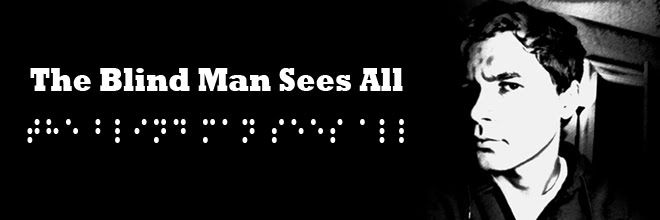Monday, May 21, 2012
8-Bit Radiohead
Wednesday, May 9, 2012
My Bloody Valentine - "We Have All the Time in the World"
The first James Bond theme song came in the second outing, From Russia with Love, and it was in part indicative of the series' still-maturing formula. It appears in instrumental form throughout the film and is played properly over the end credits, rather than accompanying a vibrant opening credit sequence, as would later become the pattern. However, the song is a telling, if embryonic, precursor to the theme songs to come: though it doesn't quite match the sheer bombast of the Shirley Bassey themes (among others), instrumentally or vocally, it's nonetheless a sweeping affair that complements the outstanding film nicely. The question of how any given one of the other Bond themes measures up is largely a question of individual taste. "The Living Daylights," for instance, is a quality entry assuming a tolerance for the über-80s stylings of a-ha; by the same token, someone must have enjoyed Madonna's appalling "Die Another Day" for it to have reached the Top 10 on both sides of the Pond.
A rare exception to the debate is "We Have All the Time in the World," a lovely song penned by longtime series composer John Barry and sung by an ailing Louis Armstrong in his final recorded performance. The song accompanies a superb and unfortunately maligned entry in the Bond canon, 1969's On Her Majesty's Secret Service. The film is, of course, the only outing as 007 for Australian actor George Lazenby, replacing a Sean Connery that producers Saltzman and Broccoli deemed too old to return for a 6th time. OHMSS is nonetheless tautly constructed, and it serves as one of the rare films in the franchise to provide some character development for Bond via the cruel murder of his recent bride - an event whose scars remain with Bond forever after, particularly in the hands of the series' more adept screenwriters. The weight of a love submitted to by an emotionally distant man and subsequently shattered prompted Barry to seek out a vocalist he considered capable of delivering both aspects of his bittersweet theme. Though he was too weak to play his trumpet at the session (leaving a tepid sounding substitute in his place), Armstrong's wistful vocal registers every last note. The result is certainly the most profound piece of music associated with the Bond franchise - and perhaps the best - but also one of the highlights of Armstrong's storied career, and an astounding (if tragically premature, even at age 67) note for him to leave the world on.
24 years later, in the wake of their masterpiece Loveless, My Bloody Valentine released a cover of "We Have All the Time in the World," recorded for Peace Together, a 1993 charity compilation devoted to ending sectarian violence in Northern Ireland. The song is, in fact, one of only two new tracks the band has ever released post-1991 (the other being a cover of "Map Ref 41°N 93°W" for a Wire tribute album). It's an odd choice, but a logical one: the ethereal wash that raised songs like "Soon" to such heights is equally appropriate here, though it's decidedly scaled down by comparison. The arrangement is virtually indistinguishable from that of the Armstrong original, striking a particularly strong contrast to the guitar tsunamis with which the group is primarily identified. The song is nonetheless an artistic success, and given the contemporary state of the band's affairs - on the heels of the disintegration of guitarist Kevin Shields' relationship with bandmate Bilinda Butcher, and the release of an album that was, after all, called Loveless - may have served much the same purpose for the artists as had the original. The rest of Peace Together is, as one usually finds on charity albums, pretty middling stuff, featuring a bland cover of "Satellite of Love" by U2 with a croaky-sounding Lou Reed and a fine cover of "Oliver's Army" by Blur. All of the songs are available for download from Peace Together itself, on a site whose awkward Flash design makes them difficult to extract. "We Have All the Time in the World" can be more conveniently accessed here, while both versions of the song can be heard below.
24 years later, in the wake of their masterpiece Loveless, My Bloody Valentine released a cover of "We Have All the Time in the World," recorded for Peace Together, a 1993 charity compilation devoted to ending sectarian violence in Northern Ireland. The song is, in fact, one of only two new tracks the band has ever released post-1991 (the other being a cover of "Map Ref 41°N 93°W" for a Wire tribute album). It's an odd choice, but a logical one: the ethereal wash that raised songs like "Soon" to such heights is equally appropriate here, though it's decidedly scaled down by comparison. The arrangement is virtually indistinguishable from that of the Armstrong original, striking a particularly strong contrast to the guitar tsunamis with which the group is primarily identified. The song is nonetheless an artistic success, and given the contemporary state of the band's affairs - on the heels of the disintegration of guitarist Kevin Shields' relationship with bandmate Bilinda Butcher, and the release of an album that was, after all, called Loveless - may have served much the same purpose for the artists as had the original. The rest of Peace Together is, as one usually finds on charity albums, pretty middling stuff, featuring a bland cover of "Satellite of Love" by U2 with a croaky-sounding Lou Reed and a fine cover of "Oliver's Army" by Blur. All of the songs are available for download from Peace Together itself, on a site whose awkward Flash design makes them difficult to extract. "We Have All the Time in the World" can be more conveniently accessed here, while both versions of the song can be heard below.
Subscribe to:
Posts (Atom)



